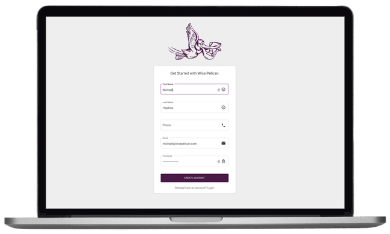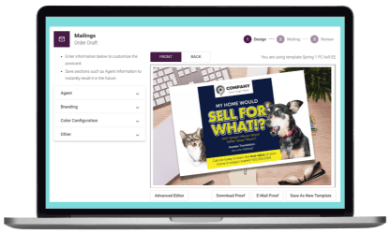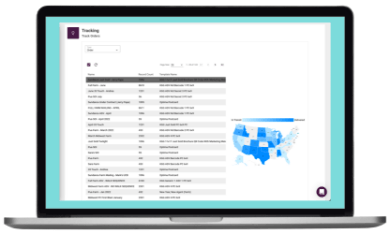We have included our YouTube video below if you would prefer to watch a video on real estate marketing strategies.
Wise Pelican YouTube
As a realtor, your marketing efforts can make all the difference in gaining clients, securing listings, and boosting your overall success.
From beginners to seasoned professionals, there are various strategies to consider when it comes to effectively promoting yourself in the real estate industry.

Understanding Your Career Stage
Before diving into the specifics of real estate marketing strategies, it’s crucial to assess where you are in your real estate career. Whether you’re just starting out or looking to expand your established brand, your marketing approach will differ accordingly.
The Novice Realtor
For those just stepping into the world of real estate, your marketing focus will revolve around building a foundation and establishing your identity.
Potential clients might not be familiar with your name or expertise at this stage, so creating a strong online presence is crucial.
Begin by setting up professional social media profiles, focusing on platforms where your target audience spends their time.
Showcase your enthusiasm, commitment, and determination through engaging content highlighting your journey, industry insights, and valuable tips for potential buyers and sellers.
Since your budget might be limited as a novice, consider leveraging cost-effective strategies like social media sharing, networking, and attending local real estate events. Building relationships within your community and among your peers can pave the way for referrals and word-of-mouth recommendations.
Entering the world of real estate as a newcomer opens the door to a world of opportunities, but it also demands a strategic and thoughtful approach to marketing. Your initial focus should revolve around establishing a solid foundation and crafting a distinct identity within the industry.
Whether it’s Instagram, Facebook, LinkedIn, or even emerging platforms, tailor your content to match the preferences of your potential clients.
As you embark on this journey, remember that your online persona should mirror your passion, dedication, and unwavering commitment to the real estate realm.
Compelling and valuable content creation is the cornerstone of this phase, such as posts that provide insight into your personal journey, shedding light on your evolution within the industry.
Sharing these experiences can forge a human connection with your audience, fostering trust and rapport. Offer industry insights and pearls of wisdom that offer value to potential buyers and sellers. Establishing yourself as a source of knowledge and guidance will draw people to your platforms.
The Developing Realtor
As you gain experience and a few successful transactions under your belt, your marketing approach should evolve to showcase your growing track record.
Highlight your recent sales and satisfied clients through professional branding, including polished logos, consistent color schemes, and well-designed marketing materials.
Building a recognizable brand image contributes to your credibility and helps you stand out in a crowded market.
Consider investing in a professional website showcasing your portfolio, client testimonials, and informative blog posts demonstrating your industry expertise.
Begin by publishing professional and engaging social media profiles across platforms that resonate with your target audience.
As you progress in your real estate journey and accumulate valuable experience, your marketing strategy should naturally evolve to reflect the growth of your track record. It’s now time to shift your focus towards solidifying your presence as a reliable and accomplished professional within the competitive real estate landscape.
Your newfound success provides the foundation upon which you can build a more substantial and impactful marketing approach.
One of the key elements of this evolution is professional branding. Creating a distinct and consistent brand identity becomes paramount.
Elements such as a polished logo, a carefully chosen color palette, and well-designed marketing materials lend an air of professionalism and credibility to your business. Your brand should serve as an immediate visual representation of your expertise and the quality of service you offer.
Developing a recognizable brand image not only distinguishes you but also contributes significantly to your credibility. A well-crafted brand communicates your commitment to excellence, reliability, and dedication to serving your clients’ needs.
Investing in a professional website becomes an essential step as you advance in your real estate career. This online hub should serve as a comprehensive showcase of your accomplishments and capabilities.
Your portfolio, listing photos, and details of recent successful transactions become the focal points. Testimonials from satisfied clients provide social proof of your competence and customer satisfaction.
An informative blog section can further demonstrate your industry expertise, offering valuable insights to potential clients and positioning you as a knowledgeable resource.
To continue engaging your target audience, maintain an active and consistent presence on social media platforms.
While you’ve established profiles earlier in your journey, now is the time to elevate your content strategy. Share not only your accomplishments but also the stories behind your successful deals.
Demonstrating your problem-solving skills and dedication to your clients can resonate deeply. Engage with your audience by responding to comments, questions, and messages promptly. Consistency is key, as it reinforces your brand and keeps you at the forefront of your followers’ minds.
The Established Realtor
Your real estate marketing strategy takes a more tactical approach for agents who have firmly established their presence in the industry.
At this stage, you can consider more advanced strategies, such as farming, which involves targeting specific neighborhoods to build a strong reputation and client base.
A consistent and well-executed farming campaign featuring postcards, newsletters, and regular interactions with the community, can solidify your position as the go-to realtor in that area. You might also allocate resources to develop a personalized marketing plan that includes a mix of online and offline strategies tailored to your target audience.
By now, you can invest in creating high-quality content, hosting educational webinars, and collaborating with local businesses to expand your reach and showcase your industry expertise.
For seasoned realtors who have firmly established themselves in the industry, their approach to marketing evolves into a more strategic and sophisticated endeavor. Having already built a foundation of success and credibility, these professionals have the opportunity to explore advanced strategies that further enhance their reputation and expand their client base.
One such real estate marketing strategy is “farming,” which entails concentrating your efforts on specific neighborhoods to cultivate a strong reputation and client network.
This involves more than just transactions; it’s about becoming an integral part of the community’s real estate landscape. Launching a well-defined farming campaign involves a multifaceted approach that demonstrates your commitment and presence in the area.
Central to this strategy is consistency.
Implementing a well-executed farming campaign involves a blend of traditional and modern marketing techniques. Printed postcards delivered directly to homes, along with informative newsletters, keep your name and expertise top-of-mind for potential clients.
These materials can provide valuable insights about the local market, showcase recent successful sales, and offer tips for homeowners. Establishing regular interactions with the community, such as attending local events, sponsoring neighborhood gatherings, or even organizing workshops, underscores your commitment to the area and its residents.
To solidify your reputation as the go-to realtor in the chosen neighborhood, personalized marketing plans come into play. By tailoring your strategies to the preferences and needs of your target audience, you’re more likely to connect with potential clients on a deeper level. This might involve a mix of online and offline approaches, encompassing social media campaigns, targeted online advertising, and local media outreach.
With a proven track record and established presence, investing in high-quality content becomes not just feasible but essential.
Hosting educational webinars that provide valuable insights into the real estate process, market trends, and buying/selling strategies showcases your industry expertise and willingness to share knowledge. Collaborations with local businesses, such as interior designers, home renovation experts, or mortgage professionals, can help you expand your reach and demonstrate a comprehensive understanding of the entire real estate ecosystem.

Leveraging the Power of Social Media
Social media emerges as an incredibly effective and budget-friendly marketing tool for those in the early stages of their real estate journey.
Establishing a strong presence on platforms like Facebook, Instagram, and LinkedIn can help you connect with your sphere of influence and potential clients.
Sharing real estate-related content, from listings to industry insights, showcases your expertise and builds your credibility within your network.
Connecting with Your Sphere of Influence
When you’re new to the real estate scene, your existing network becomes your most valuable asset.
Social media platforms provide a virtual stage to reconnect with friends, family, acquaintances, and colleagues. By expanding your connections on platforms like LinkedIn and friending people on Facebook, you’re tapping into a network that already knows you and your background.
Establishing Your Brand Identity
Your social media profiles become an extension of your professional identity. Customize your profiles with a high-quality profile picture, a well-crafted bio, and a consistent branding aesthetic.
This enhances your online presence and adds a touch of professionalism, which can be incredibly impactful when potential clients are researching your services.
Sharing Relevant Content
Content is king in the digital realm, and social media is the ideal platform to showcase your expertise.
Share a mix of content that offers value to your audience. This could range from property listings and market updates to insights into the buying or selling process.
By providing valuable information, you position yourself as a knowledgeable resource in the real estate domain. Utilize eye-catching visuals, such as photos and videos, to make your posts more engaging and shareable.
Engaging with Your Audience
Effective social media marketing isn’t just about broadcasting content; it’s about engaging in conversations.
Respond promptly to comments, messages, and inquiries. Acknowledge feedback, answer questions, and foster discussions around real estate topics. This showcases your approachability and helps build genuine connections with potential clients.
Building Credibility
As you consistently share content that reflects your industry insights, potential clients start to view you as a reliable source of information.
Regularly posting about your achievements, such as successful transactions or client testimonials, adds to your credibility and showcases your track record.
Navigating Different Platforms
Each social media platform has its unique features and user demographics.
LinkedIn, for instance, is a hub for professional networking and thought leadership, while Instagram is visually oriented and offers opportunities to showcase property listings through photos and stories.
Tailor your content to each platform’s strengths while maintaining a cohesive brand identity across all channels.
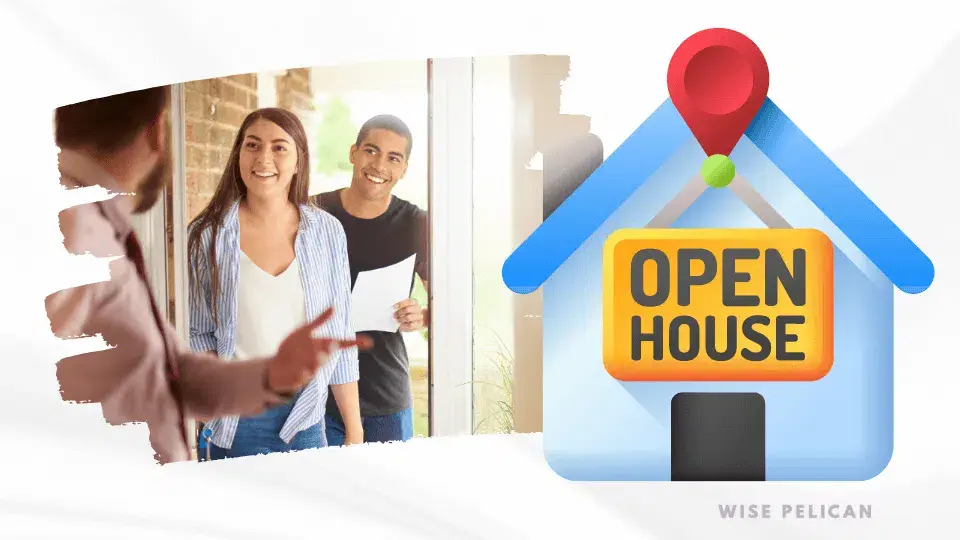
Capitalizing on Open Houses
Open houses provide a direct opportunity to connect with potential clients and showcase your expertise.
Hosting well-organized and visually appealing open houses can create a memorable experience for buyers and sellers.
Collaborating with title agencies can further enhance your open house experience by providing resources like marketing materials and door-knockers.
Title agencies often have a wealth of resources that can enhance the event’s professionalism and effectiveness.
They can provide materials like high-quality flyers, brochures, and door knockers that showcase both the property and your brand. These collateral materials serve as tangible takeaways, reminding attendees of your services long after the open house ends.
Direct Connection with Potential Clients
Open houses provide a platform for face-to-face interactions that digital marketing often can’t replicate.
Prospective buyers and sellers get to meet you in person, experience your professionalism, and gauge your industry knowledge firsthand. This personal touch fosters trust and allows you to address questions and concerns on the spot, demonstrating your dedication to their real estate needs.
Showcasing Expertise and Presentation Skills
Hosting a successful open house goes beyond merely displaying a property. It’s a chance to showcase your expertise in property marketing, market knowledge, and negotiation skills.
From the moment potential clients step through the door, they should experience your attention to detail, ability to highlight the property’s unique features, and knack for making the space feel inviting and desirable.
Creating a Memorable Experience
An open house isn’t just about presenting the property; it’s about creating an immersive experience.
Pay attention to the ambiance – from lighting to scent – to evoke positive emotions and leave a lasting impression. Providing refreshments, perhaps themed to the property’s style, can add a welcoming touch. Engage visitors with informative brochures, floor plans, and maybe even interactive elements, like tablets with virtual tours or property videos.
Promoting Community Engagement
Beyond connecting with potential clients, open houses also offer an opportunity to engage with the local community.
Consider partnering with nearby businesses for cross-promotion. Collaborate with a local bakery for refreshments or a nearby florist for floral arrangements. Such collaborations enrich the open house experience, highlight your connection to the community, and strengthen your brand’s local presence.

Highlighting Community Connections
When realtors collaborate with local businesses, they showcase their genuine investment in the neighborhood’s well-being.
This authenticity resonates with potential clients seeking properties, a lifestyle, and a sense of belonging.
By promoting local businesses, you highlight the interconnectedness of the community, emphasizing the value of supporting local enterprises.
Strengthening Your Local Presence
Your brand’s reputation is intertwined with the community you serve. Collaborative efforts highlight your commitment to contributing positively to your community.
As attendees interact with various local businesses during the open house, they associate your brand with a sense of community enrichment and discover that you’re not just a realtor but an advocate for the neighborhood’s vitality.
Fostering Ongoing Relationships
Collaborative open houses are just the beginning.
These connections can evolve into lasting relationships with local business owners. You might find opportunities for joint marketing efforts, referrals, or even community events.
This networking enriches both your business and the neighborhood, creating a thriving ecosystem where all stakeholders benefit.
Maximizing Post-Open House Engagement
The open house experience doesn’t end when the last visitor leaves.
Follow up with attendees promptly, thanking them for their visit and providing any additional information they might need.
Use this post-event engagement to nurture leads, address any remaining questions, and establish a relationship that extends beyond the open house itself.
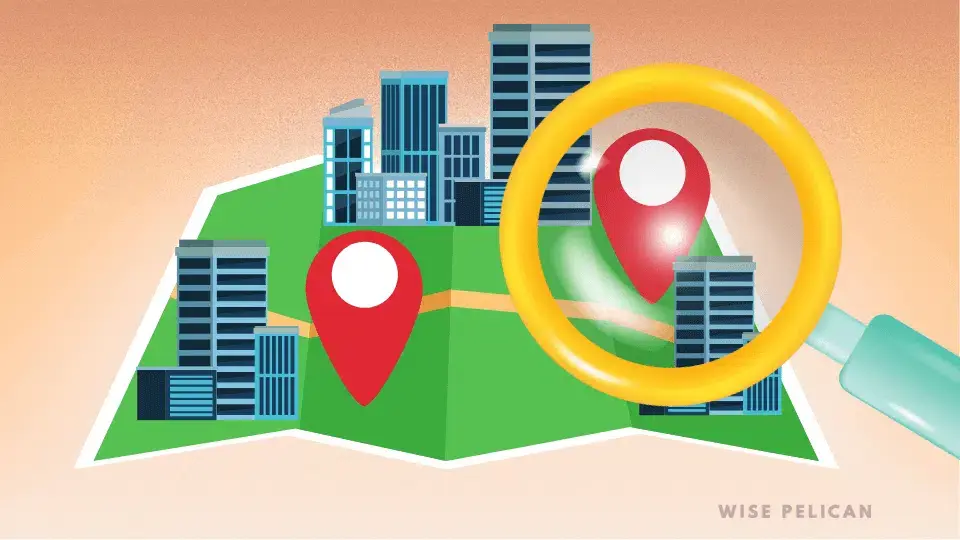
Farming: Cultivating Success in Real Estate through Targeted Marketing
Farming, the practice of targeting specific geographic areas for marketing purposes, is a proven and scalable strategy.
Choose your farming area carefully, ensuring it has a healthy turnover rate and homes with equity.
Consistency is vital in farming – commit to a year of consistent marketing efforts to see tangible results. Utilize postcards and listings to establish your presence and credibility within the chosen neighborhood.
The Power of Farming
Geographic farming transcends its traditional agricultural roots and transforms into a strategic approach that can yield fruitful results for realtors.
Real estate professionals can harness the power of familiarity, build their brand, and establish lasting connections within these chosen neighborhoods by focusing on specific geographic areas for marketing purposes.
From choosing the right area to maintaining consistency, farming is a proven and scalable strategy that demands careful planning and dedication.
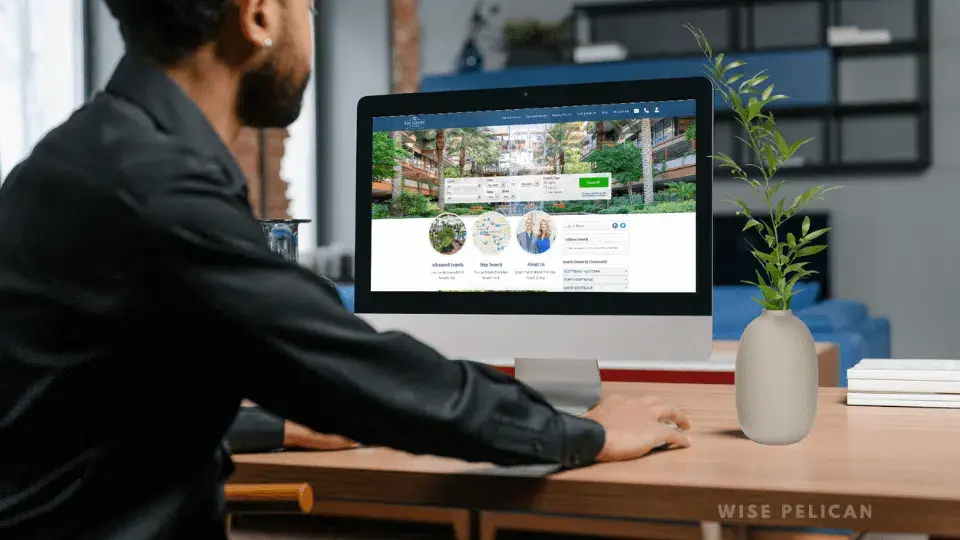
Building a Professional Website
A professional website is necessary for any realtor looking to establish a solid online presence.
Opt for an IDX-integrated website that showcases MLS listings, allowing potential clients to search for properties directly on your site.
Utilize lead capture mechanisms to gather potential client information for follow-up. Platforms like Real Geeks offer user-friendly options for creating such websites.
The Power of IDX Integration
IDX (Internet Data Exchange) integration drives a dynamic and informative real estate website.
It allows you to seamlessly display MLS listings on your website, empowering potential clients to explore properties directly from your platform.
This integration eliminates the need for clients to navigate third-party websites, ensuring they stay engaged and immersed in your online space.
Showcasing MLS Listings
An IDX-integrated website transforms your site into a one-stop destination for property seekers.
Clients can search for properties by various criteria, such as location, price range, property type, and more.
By offering an extensive database of MLS listings, you position yourself as a comprehensive resource, offering convenience and value to those searching for their dream homes.
User-Friendly Experience
User experience is paramount in the world of online interaction. Platforms like Real Geeks offer user-friendly options that make it easy for realtors to create intuitive and visually appealing websites.
The website’s navigation should be seamless, guiding visitors effortlessly through property searches, neighborhood information, and your professional biography.
The goal is to keep visitors engaged, informed, and inspired to take the next step – whether that’s reaching out for inquiries or subscribing to Microsoft to your updates.
Lead Capture Mechanisms for Effective Follow-Up
An IDX-integrated website is not just about displaying listings; it’s a valuable tool for lead generation.
Utilize lead capture mechanisms strategically placed throughout the site to gather visitor information. These mechanisms, such as contact forms or pop-up prompts, encourage visitors to provide their details in exchange for access to exclusive content, property alerts, or personalized market insights.
Building Relationships through Follow-Up
The information collected through lead capture mechanisms becomes valuable for nurturing relationships.
With potential clients’ permission, you can engage in strategic follow-up through email campaigns or newsletters. Provide relevant and insightful content informing them about market trends, new listings, and real estate tips.
By consistently delivering value, you remain top-of-mind when they’re ready to embark on their real estate journey.
Seamless Integration with CRM Tools
Many IDX-integrated platforms seamlessly integrate with Customer Relationship Management (CRM) tools, streamlining your lead management process.
This enables you to categorize leads, track interactions, and automate follow-up emails, ensuring no potential opportunity slips through the cracks.
Paid Search Ads and Facebook Advertising
As your budget grows, consider investing in paid search ads on platforms like Google and Microsoft.
These ads capitalize on user intent as people actively search for properties. Facebook ads can also be effective for targeting specific demographics and interests, although the lead quality might vary compared to search ads.
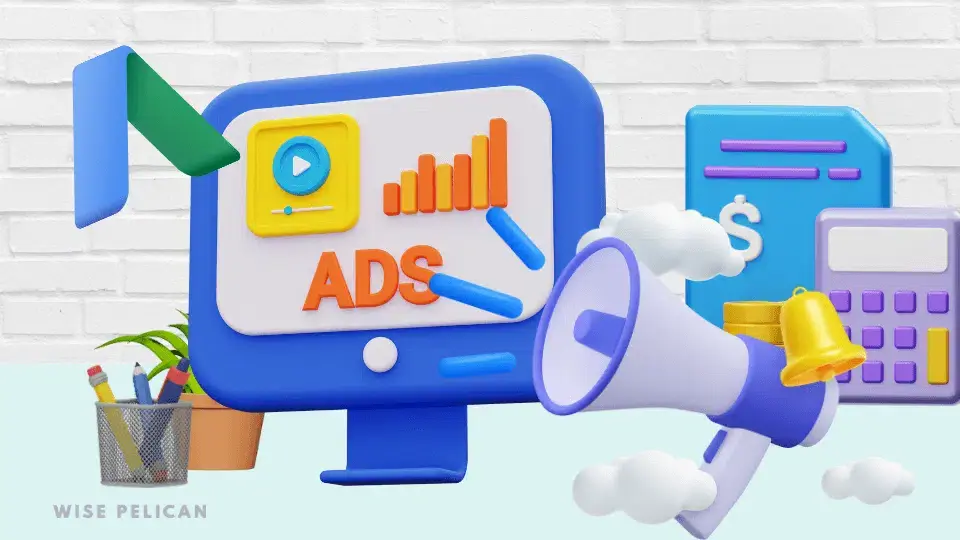
Paid Search Ads on Google and Microsoft
Google Ads and Microsoft Ads are powerful online advertising platforms that allow real estate professionals to reach their target audience effectively.
Google Ads, often referred to by its previous name, Google AdWords, operates within the Google search engine and its network of partner websites. When users search for specific keywords related to your products or services, your ads can appear at the top of search results or on relevant websites, creating visibility exactly where potential customers are actively seeking information.
Similarly, Microsoft Ads operates on the Bing search engine and partner websites within the Microsoft Advertising network. This platform offers a valuable alternative to Google Ads, tapping into a unique user base and demographic
Both platforms work on a pay-per-click (PPC) model, meaning you only pay when users click on your ads.
Advertisers set budgets and bid amounts for keywords relevant to their offerings, and the platforms use complex algorithms to determine ad placements based on factors like bid amount, ad quality, and user intent.
Both Google Ads and Microsoft Ads offer robust targeting options, allowing you to define your audience by factors such as location, demographics, interests, and behaviors.
This precision targeting ensures that the most relevant and likely-to-convert users see your ads.
The success of your campaigns depends on crafting compelling ad copy, selecting the right keywords, and optimizing your landing pages to provide a seamless user experience. These platforms offer detailed analytics and insights, allowing you to measure performance, track conversions, and refine your strategies for optimal results.
These platforms allow you to bid on specific keywords relevant to your services, ensuring that your ads appear when users search for terms like “real estate agent,” “homes for sale,” or specific property features.
User Intent and Targeted Reach in Your Real Estate Marketing Strategies
The beauty of paid search ads lies in their ability to capitalize on user intent.
When someone types a real estate-related query into a search engine, they display a level of intent that’s hard to match with other forms of advertising.
By positioning your ad at the top of search results, you’re meeting potential clients at a critical moment when they’re actively seeking solutions you can provide.
Customization and Geo-Targeting
Both Google Ads and Microsoft Ads offer extensive customization options, allowing you to tailor your ads to specific geographic areas, demographics, and even the time of day.
For realtors, this means you can focus your budget on areas where you operate, ensuring your ads appear to users most likely to engage with your services.

Facebook Advertising
Facebook Ads is a dynamic and versatile advertising platform that leverages the massive user base and rich data of the Facebook social network. Unlike search ads targeting users actively searching for specific keywords, Facebook Ads operate on a different premise.
They focus on targeting specific demographics, interests, behaviors, and user profiles, allowing businesses to showcase their products or services to a highly tailored audience.
When creating a Facebook Ad campaign, advertisers can define their target audience based on factors like age, gender, location, interests, job titles, and even recent life events.
This highly granular targeting ensures that ads are shown to users who match the intended customer profile, even if they aren’t actively seeking those products or services at that moment.
Facebook Ads can take various formats, including images, videos, carousels, and more.
These ads appear seamlessly within users’ newsfeeds, providing a non-disruptive experience while ensuring optimal visibility.
Facebook’s advanced algorithms optimize ad delivery, displaying them to users who are most likely to engage and convert based on their past behavior and preferences.
The critical difference between Facebook Ads and search ads lies in user intent.
While search ads connect with users actively seeking information or solutions, Facebook Ads offer a proactive approach by presenting offerings to users based on their interests and behaviors.
This makes Facebook Ads particularly effective for brand awareness, engagement, and targeting users who might not have initiated a search but could still be potential customers.
Facebook Ads can be a game-changer for realtors. Emotions and aspirations often fuel the real estate journey, and Facebook Ads capitalize on this by enabling realtors to target specific demographics and interests of potential clients.
This precision targeting ensures that Realtors can present their property listings, market insights, and services to individuals who align with their target audience.
The visual nature of Facebook allows Realtors to showcase properties through captivating images and videos, offering virtual tours that resonate with potential buyers.
Facebook’s interactive and shareable nature also encourages engagement and referrals, amplifying the reach of realtors’ campaigns.
You can use carousel ads to showcase multiple property listings, video ads to offer virtual property tours, or slideshow ads to tell a visual story about your real estate services.
The visual nature of Facebook makes it an excellent platform to showcase the lifestyle that comes with the properties you represent.
Lead Quality Considerations
While both search ads and Facebook ads offer unique advantages, it’s essential to consider lead quality. Search ads often attract leads with a higher level of intent, as they’re actively seeking real estate solutions.
On the other hand, Facebook ads might generate leads with varied levels of interest, including some who may not be in immediate need of real estate services. However, Facebook’s detailed targeting options allow you to fine-tune your audience to increase the likelihood of reaching motivated potential clients.

Real Estate Marketing Strategies: Consistency and Long-Term Vision
No matter the strategy you choose, consistency is vital. Marketing efforts take time to yield results, especially in the long term. Stay committed to your chosen methods, and be patient while waiting for your efforts to bear fruit.
Planting the Seeds of Trust
Much like cultivating a garden, real estate marketing efforts require time to germinate and flourish. Your chosen strategies are the seeds you sow – they hold the potential for growth and prosperity.
However, just as plants need consistent care to thrive, your real estate marketing strategies demand continuous attention and nurturing.
Building Recognition and Recall
Consistency fosters recognition. When potential clients consistently encounter your brand, your messaging, and your professionalism, it forms a lasting imprint in their minds.
This recognition builds trust, as familiarity breeds a sense of reliability. Over time, people are more likely to turn to someone they recognize and trust when the need for real estate services arises.
Long-Term Relationship Building
Real estate is a relationship-driven industry. Establishing relationships takes time, and consistent marketing efforts are vital in forging these connections.
Your commitment to staying engaged with your audience, whether through regular social media updates, informative newsletters, or community involvement, showcases your dedication to serving their needs and demonstrates your longevity in the industry.
Navigating the Slow Burn
Marketing is not always about immediate gratification. While some strategies might yield quick results, others require patience before you see substantial returns.
For instance, farming a neighborhood can take time before you establish yourself as the go-to realtor in that area. However, once the momentum builds, the rewards can be exponential.
The Compound Effect
Consistency has a compound effect. Small efforts made consistently over time accumulate and multiply.
Each post, each interaction, and each property showcase contributes to your online presence, brand recognition, and overall credibility.
These efforts build on each other, creating a solid foundation that amplifies the impact of your marketing strategies.
The Role of Perseverance
Perseverance in the face of challenges is a hallmark of successful realtors. Just as the market fluctuates, your marketing endeavors will encounter obstacles.
Stay adaptable, ready to adjust your approach when needed, but never compromise on consistency. During challenging times, your unwavering commitment can set you apart from competitors who may falter.
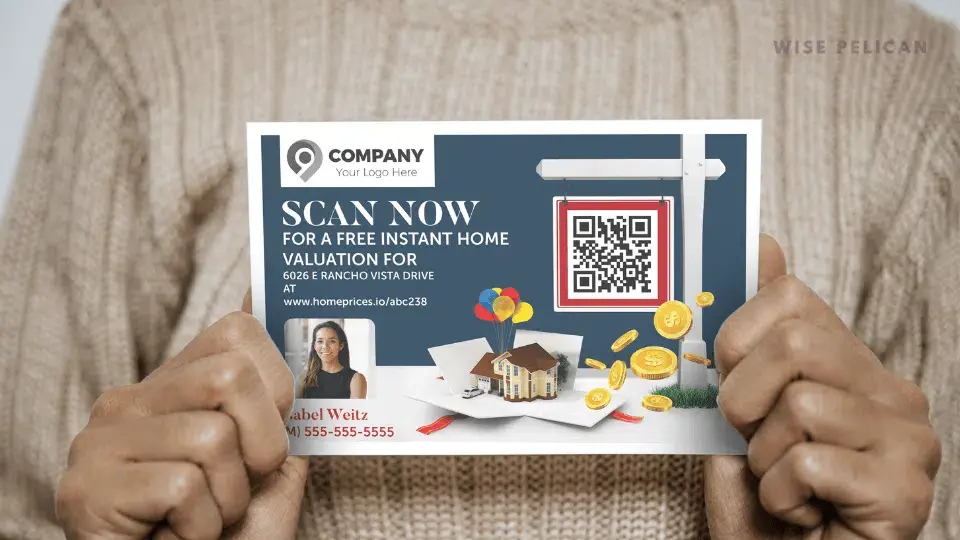
Celebrating Milestones
Consistency doesn’t mean you can’t celebrate milestones along the way. When your first lead comes in from a social media post, when a farming campaign results in a listing, or when your website generates substantial traffic, these moments of success validate your dedication. They remind you that your consistency is paying off, encouraging you to stay the course.
Wise Pelican Real Estate Marketing Materials
Marketing yourself as a realtor requires a multi-faceted approach that aligns with your career stage and financial resources.
From harnessing the power of social media to establishing a professional website, each strategy has its merits and caters to different aspects of your real estate business.
By understanding the nuances of each approach and staying consistent in your efforts, you can effectively market yourself as a realtor and pave the way for sustained success in the ever-evolving real estate landscape. Unlock the potential of your real estate marketing with Wise Pelican’s tailored solutions. From customized letters that capture hearts to postcards that make an unforgettable impression, we are here to amplify your brand and elevate your reach.




